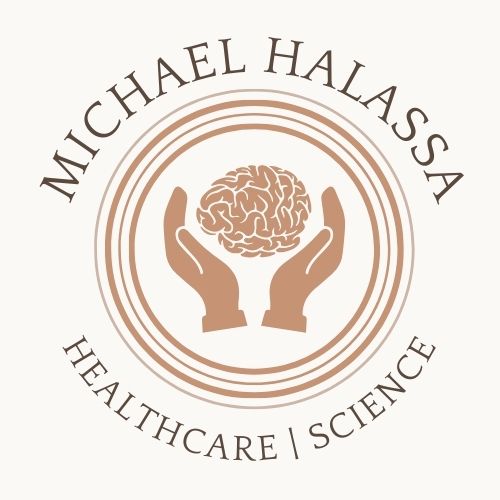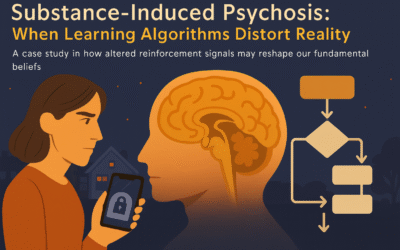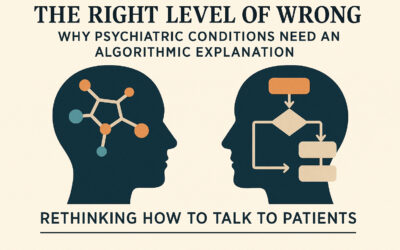Michael Halassa’s Blog
Substance-Induced Psychosis: When Learning Algorithms Distort Reality
Understanding psychiatric symptoms as biased algorithms rather than chemical imbalances opens new therapeutic possibilities. Instead of treating medication and therapy as separate interventions targeting different domains, we can recognize them as complementary approaches working on the same computational substrate. Pharmacological interventions like cholinergic modulation help restore healthy distributional properties in the circuits that generate confidence estimates. Therapeutic interventions help retrain these same constraint satisfaction algorithms to process confidence information more appropriately. Both target the algorithmic dysfunction that generates pathological beliefs.
The Right Level of Wrong: Why Psychiatric Conditions Need an Algorithmic Explanation
There's a paradox at the heart of modern psychiatry that keeps me up at night. We have two ways of understanding mental illness that seem fundamentally at odds, yet both appear indispensable. On one side, we have the molecular story: dopamine receptors,...
Reflections on the 2025 Psychosis Innovation Summit in Boston
Michael Halassa reflects on the inaugural innovation in psychosis summit (Boston 2025)
Systems Neuroscience as a Foundation for Psychiatric Drug Discovery
Michael Halassa discusses how Systems Neuroscience can accelerate drug discovery
The Brain’s Confidence Problem: New Insights into Schizophrenia from an Unexpected Source
New research reveals how brain circuits control belief updating in schizophrenia. Dr. Michael Halassa explores breakthrough findings on delusional thinking, confidence calibration, and potential neuromodulation treatments for psychotic disorders.
What Cobenfy Reveals About the Future of Psychiatry
How Cobenfy signals a shift in psychiatric drug development—from dopamine to muscarinic targets and algorithmic models of brain function.
Rewiring Psychosis: How Neuromodulation Is Shifting the Schizophrenia Treatment Paradigm
A Johns Hopkins study using deep brain stimulation for schizophrenia points to the substantia nigra and mediodorsal thalamus as key circuit nodes for symptom relief. This blog post explores how invasive and non-invasive neuromodulation is reshaping our approach to treatment-resistant psychosis—and why computation, not chemistry, may be psychiatry’s next frontier.
Why Mental Health Treatments Need Algorithmic “Flight Simulators
Discover how algorithmic psychiatry uses computational ‘flight simulators’ to predict mental health treatment outcomes across molecular, neural, and cognitive levels. Could this revolutionize care for schizophrenia and beyond?
The Self as a Coalition: How the Brain’s Distributed Systems Shape Mental Health
Explore how the brain’s reward-seeking and predictive systems interact, and how their tension underlies conditions like psychosis and mania. Learn how this framework can inform mental health treatment.
Chronic Stimulant Use and Psychosis: Risks, Mechanisms, and Treatment Insights
Discover the link between chronic stimulant use and psychosis, with insights from Mildred’s story and the science behind dopamine dysregulation. Learn about treatment options and prevention strategies.










